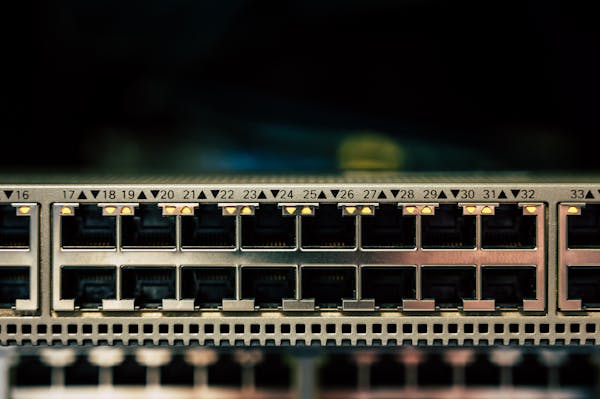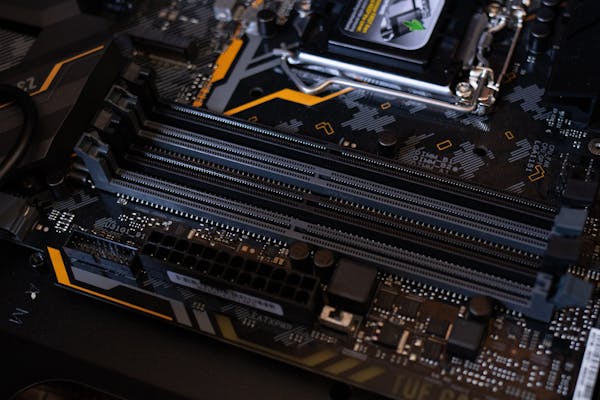Source article: click here (4G rotating proxy)

Exploring Dynamic 4G Proxy Servers
As internet privacy becomes paramount, mobile 4G proxies have emerged as a vital tool for maintaining online privacy.
Defining 4G Rotating Proxies
4G rotating proxies employ mobile networks to provide changing IPs to users. Unlike static proxies, they offer dynamic IP rotation, enhancing anonymity.
How Do They Work?
When connected, a dynamic IP from a mobile network is provided. These IPs change after specific durations or actions, preventing consistent monitoring.
Advantages of Using 4G Rotating Proxies
- Increased Security: Dynamic IP rotation prevents tracking.
- Bypassing Geo-Restrictions: Changing IPs facilitate unrestricted browsing.
- Lowered Detection Rates: Frequent IP changes prevent bans.
Practical Implementations
- Web Scraping: Rotating IPs maintain access to target sites.proxies reduce account bans.
- Ad Verification: Changing IPs simulate diverse user locations.
- o Consider}
In choosing a proxy service, consider:
- Number of Available IPs: A larger pool enhances anonymity.
- Rotation Frequency: Determine if the service rotates per request.
- Regional Availability: Access to multiple regions aids in geo-testing.
Limitations to Be Aware Of
- Budget Concerns: 4G proxies often have higher costs compared to other types.
- Performance Issues: Mobile networks might experience fluctuations.
- Compliance Issues: Ensure usage aligns with laws.
Summing Up
4G rotating proxies offer unparalleled anonymity, establishing their importance in today’s digital age.
Exploring the Inner Workings of 4G Rotating Proxies
Within the sphere of online anonymity, mobile 4G proxies have become essential components for maintaining user anonymity.
What Are 4G Rotating Proxies?
4G rotating proxies leverage mobile networks to provide changing IPs to users. Unlike static proxies, they change IP addresses periodically, improving security.
Mechanism Behind 4G Rotating Proxies
When activated, users receive a 4G network IP. These IPs are switched periodically, hindering surveillance.
Why Opt for 4G Rotating Proxies
- Improved Privacy: Dynamic IP rotation obscures user identity.
- Overcoming Location Barriers: Changing IPs allow access to restricted content.
- Reduced IP Bans: Frequent IP changes avoid detection systems.
Use Cases for Mobile Proxies
- Web Scraping: Rotating IPs ensure continuous data collection.
- Social Media Management: Dynamic proxies reduce account bans.
- Marketing Research: Changing IPs validate ad placements.
Factors to Consider
In choosing a proxy service, consider:
- Number of Available IPs: A larger pool reduces repetition.
- IP Change Intervals: Determine if the service rotates per request.
- Regional Availability: Access to multiple regions supports diverse tasks.
Potential Challenges
- Cost Implications: 4G proxies often have higher costs compared to other types.
- Network Reliability: Mobile networks can be less stable.
- Compliance Issues: Ensure usage avoids illicit activities.
Final Thoughts
4G rotating proxies offer unparalleled anonymity, positioning them as essential tools in contemporary online activities.
Today’s online landscape, staying anonymous and avoiding blocks has become more necessary than ever. Affiliate marketers, agencies, and SEOs often turn to proxy servers to change their IPs. Among these, mobile 4G proxies have become the go-to solution.
What makes them better or worse than other alternatives like data center proxies? Let’s break it down.
== What is a 4G Rotating Proxy?
A 4G mobile proxy is a proxy that relays requests through real mobile networks. These proxies change IPs at preset intervals or upon request, emulating human behavior and eliminating the risk of bans or blocks.
== Main Proxy Types
Let’s look at the key proxy types before comparing:
1. **Datacenter Proxies**
– High-speed and cheap, but easily detectable.
2. **Residential Proxies**
– Use IPs assigned to real homes. More reliable, but slower and costlier.
3. **4G Mobile Proxies**
– Use real SIMs on LTE networks. Best for scraping, bots, social media.
4. **SOCKS5 Proxies**
– Protocol-based, flexible, used for various apps, not just HTTP.
== Comparison Table
| Feature | 4G Rotating Proxies | Datacenter Proxies | Residential Proxies | SOCKS5 Proxies |
|————————|———————|———————|———————|—————-|
| IP Source | Mobile Network (SIM)| Data Centers | Home IPs | Varies |
| Rotation | Yes (Frequent) | Sometimes | Optional | Manual |
| Ban Resistance | High | Low | Medium | Depends |
| Speed | Medium | High | Low-Medium | High |
| Price | High | Low | Medium | Low-Medium |
| Target Use | Social, Ads, Bots | General Scraping | E-commerce, Research| General |
| Block Detection | Low | High | Medium | Medium |
== Technical Advantages of 4G Rotating Proxies
Why are 4G proxies so powerful?
– **Real Device Trust**: Websites trust mobile IPs more than others due to carrier NAT and wide user pools.
– **Shared Reputation**: IPs are shared across many users, making banning a single user risky.
– **Geo-targeted Mobile Carriers**: Rotate between networks in real U.S. cities or countries.
– **Dynamic Rotation**: Can rotate every few minutes or after each request.
– **Bypasses Captchas**: Mobile IPs are less likely to trigger captchas or challenge verifications.
== Where 4G Proxies Win
Let’s cut to the chase— if you’re doing social media automation, nothing works better than a solid 4G proxy.
– Facebook and Reddit limit data center abuse.
– Web scraping? You’ll trigger fewer blocks.
– Ads management across banned zones? Done.
== Where They Fall Short
– **Cost**: They’re way more expensive.
– **Speed**: Slower than static datacenter options.
– **Limited Threads**: Some providers limit concurrent usage.
== SOCKS5 vs 4G: Protocol vs Behavior
SOCKS5 proxies are great tools. But they don’t have native rotation.

| Attribute | 4G Proxy | SOCKS5 Proxy |
|———————|——————–|——————–|
| Protocol Type | HTTP/HTTPS | SOCKS5 (All apps) |
| Rotation | Yes | Manual |
| IP Trust Level | Very High | Medium |
| Use Cases | Social, Ads, Bots | Torrenting, Apps |
== Use Cases Side-by-Side
**4G Rotating Proxies:**
– Social Media Management
– Mobile Ad Verification
– SEO Scraping
– Sneaker Bots / E-com Testing
– Marketplace Automation
**Datacenter Proxies:**
– High-volume scraping (non-sensitive)
– Speed-demanding tasks
– Price-conscious campaigns
**Residential Proxies:**
– E-com price intelligence
– Research tools
– CAPTCHA-heavy targets
**SOCKS5 Proxies:**
– Application-level traffic routing
– Anonymity over torrents
– Bypassing firewalls
== How to Choose the Right One?
Not all proxies are created equal. Here’s how to choose:
– Need speed? Go datacenter.
– Need trust and stealth? Go 4G mobile.
– Need app-level routing? Go SOCKS5.
– Need wide IP pools without rotation? Try residential.
== Future of 4G Rotating Proxies
With AI detection systems growing smarter, only carrier networks are keeping up. We’re seeing:
– 5G proxy rollouts in testing
– Smarter rotation algorithms
– Integration with automation platforms like Jarvee, NextPost, Puppeteer
== Final Verdict
If stealth matters, 4G rotating proxies are your best bet. For any campaign that’s sensitive, black-hat, or gray area, it’s worth the investment.
== Spintax Conclusion
If you’re testing products or scraping competitors, investing in the right proxy is not optional anymore.
They may feel expensive, but the results speak for themselves.
https://www.fortinet.com/resources/cyberglossary/proxy-server
https://en.wikipedia.org/wiki/Proxy_server
https://support.microsoft.com/en-us/windows/use-a-proxy-server-in-windows-03096c53-0554-4ffe-b6ab-8b1deee8dae1
https://www.reddit.com/r/explainlikeimfive/comments/1dfgepb/eli5_what_is_a_proxy_server_and_why_would_i_as_an/
https://surfshark.com/blog/proxy-server





















